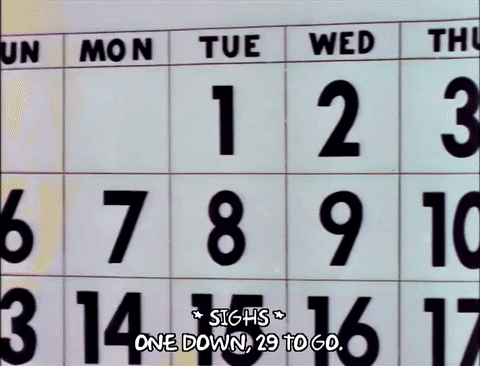
Small business blogging can be tough
You’ve probably heard lots of advice about how important it is for you to maintain a blog for your small business (you may even have heard that from us). But when you’re not a professional writer, keeping up with your company blog can be an intimidating task.
But don’t despair! We’ve got some tips for the beginning blogger that can turn this chore into a more manageable exercise.
1. Read other blogs
The hardest part of blogging for most small business owners is simply coming up with topics to write about, week after week. Sometimes inspiration hits and you’ll have no trouble pumping out some great content, but other times it seems like there’s nothing possible to write about.
When this happens, one of the best solutions is simply to read other blogs. Find other blogs in your industry if you can, or just any other blog. I’m not suggesting you plagiarize or steal content, but looking at what other writers do is a great way to get inspired.
Maybe one of your competitors has written something you disagree with, and you can write a response. Maybe someone in a different industry has written an analysis of an aspect of their work that will inspire you to write something similar about your own industry. Check out this post for tools to help you find and manage a blog reading list.
2. Write down your ideas when you have them
Have you ever been hard at work when it occurs to you that something you’re working on would make a great blog post? This happens to me all the time – but if I don’t write it down, I will definitely have forgotten it by the time I sit down to write a blog post.
I make a point to use the Notes app on my phone to keep track of ideas, and then when I sit down at my computer to write I copy these ideas into a spreadsheet where I keep track of topics I want to write about. Having all my ideas in front of me like this helps me plan the best approach, and it means I’m almost never stuck with nothing to write about.
3. Find a schedule you can manage, and stick to it
It can feel like in order to keep your audience engaged, you need to post every day. If all you do is write, this might be manageable, but daily blogging is incredibly hard to do if your job requires you to do literally anything else.
Instead of committing to a schedule that will be impossible to keep up, find something you can handle and stick to it. Many successful blogs have managed to build an audience by posting only once each week (or once each month!). As long as your audience knows when they can expect to see your posts, they won’t be disappointed.
4. Answer your audience’s questions
It can be hard to step outside of yourself and look at your industry as an outsider. We tend to take the things we know for granted, and we forget that people without our expertise often don’t know a lot of the basic facts of our industries.
If you want to create great blog content, one of the easiest things to do is to simply listen to the kinds of questions your customers and your audience are asking, and create posts that answer those questions. Not only are these great content, but they’re also great for SEO!
5. Make your posts easy to read
It doesn’t matter how good your writing is if nobody is willing to read it. One of the things that is most likely to irritate readers is a poorly formatted blog post.
People who read online content are used to blog posts that are formatted in a particular way – short paragraphs, broken up by large, easy-to-read headings. Novice bloggers tend to write the way we were all taught to write in schools – long paragraphs that start and finish a thought. Unfortunately, if you write that way online, most people will just skip it.
6. Use lots of images
For the same reason, it’s important to use images in your blog posts. They help break up the text, making it easier to read. They can also be an opportunity to provide more information, or a little comic relief.
It may sound condescending to say that adults need funny pictures to pay attention, but it’s not meant to be insulting to your readers’ intelligence. The fact is that people see so much content these days and anything you can do to stand out or be more entertaining is going to be something that helps you succeed.
7. Work on your headline skills
When you’ve spent hours crafting the perfect blog post, you can still blow it if you don’t make your post enticing. When it comes down to actually getting people to click on your post, your headline is critical.
Thousands and thousands of words have been written on the art of crafting the perfect headline, but it all boils down to trying to be as enticing as possible. Make sure your headline clearly displays the value of the post you’ve worked so hard on – give people a good reason to click, or all of your hard work will be for nothing.
Bonus: Keep it up
Blogging can be discouraging, especially when you don’t seem to be getting much engagement from the audience that you want. But if you’re producing good content and you stick with it, you’ll find your audience eventually, and in the meantime you’ll be reaping the SEO rewards that come from blogging.
Do you have any other tips for beginning bloggers? Leave a comment or drop us a line on Twitter.









Great tips! Thanks Lauchlin for sharing! But I was wondering, you mentioned putting lots of images. Doesn’t this cause slow loading speed for the page? do you recommend any image compression tools that doesn’t compromise quality?